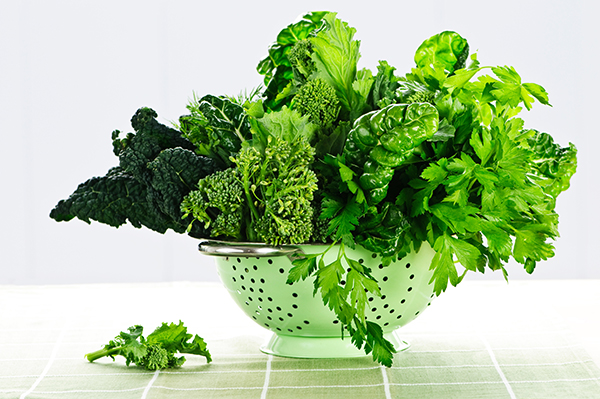 Parler
Parler Gab
Gab
Health profile of cherries
Cherries come in both sweet and sour (tart) varieties. The fruit is full of a potent and beneficial antioxidant called anthocyanin. Anthocyanins are water-soluble pigments that, depending on their pH, make certain foods black, blue, purple or red. Cherries are also rich in vitamin C, a nutrient you need for immune health. They are also a great source of dietary fiber (Related: Study: Cherries can help fight heart disease, diabetes and other inflammatory diseases.) One cup of sweet, raw cherries without pits offers the following nutrients:- Calories – 97
- Fat – 0.31 g
- Carbohydrates – 24.6 g
- Dietary fiber – 3.23 g
- Protein – 1.63 g
- Vitamin C – 10.8 mg (11 percent of the daily value (DV))
- Potassium – 342 mg (seven percent of the DV)
- Calories – 77.5
- Fat – 0.47 g
- Carbohydrates – 18.9 g
- Dietary fiber – 2.48 g
- Protein – 1.55 g
- Vitamin C – 15.5 mg (17 percent of the DV)
- Potassium – 268 mg (six percent of the DV)
Cherries promote weight loss
If you're trying to lose weight, you can enjoy cherries as a healthy snack. Cherries are low in calories and full of dietary fiber and they can help you feel full faster so you eat less. In a 2009 study published in the Journal of Medicinal Food, researchers observed rats split into two groups. Both were given a high-fat diet for 90 days. One group of animal subjects received whole tart cherry powder and the other did not. The research team found that the animals who received the cherry powder did not gain as much weight or build as much body fat. Additionally, their blood showed much lower levels of inflammation compared to the rats who did not get cherry powder.Cherries improve heart health
Heart disease is the leading cause of death in the U.S. At least 697,000 people died from heart disease in 2020, which accounted for one in five deaths. Heart disease costs America a whopping $229 billion annually, which includes the cost of healthcare services, medicines and lost productivity due to premature death. Key risk factors for heart disease include diabetes, high blood cholesterol, high blood pressure (hypertension), obesity, smoking, having an unhealthy diet, not getting enough exercise and the excessive use of alcohol. If you are worried about your heart health, you can switch to a healthy diet to help lower your risk of developing heart disease. Research suggests that the anthocyanins, flavonols, vitamins and dietary fiber in cherries and other berries can help lower your risk of developing cardiovascular disease and improve heart health. Data from clinical studies in healthy humans; those with health issues like diabetes, dyslipidemia (an excess of cholesterol or fats in the blood), high blood pressure and metabolic syndrome; and those who smoke show a significant decrease in cardiovascular disease risk factors after they ate berries. The same study also suggests that the anthocyanins in cherries can help boost heart health by reducing metabolic risk factors, improving low-density lipoprotein (LDL) cholesterol levels, improving glucose metabolism and reducing fat and cholesterol levels in the blood. In a 2013 study published in the journal Current Pharmaceutical Design, scientists reported that sour cherry seed extract had a cardioprotective effect in rabbits with high cholesterol. Researchers who conducted the study also discovered that the rabbits who were given sour cherry seed extract had significantly improved cardiac function and a decrease in atherosclerotic plaque formation and infarct size. An infarct is a small, localized area of dead tissue that forms due to a lack of blood supply.Cherries can potentially treat gout
Gout or hyperuricemia is a form of arthritis that causes symptoms such as inflammation, redness and severe pain. It occurs when you have too much uric acid in the blood and it crystallizes in your joints. Gout usually affects the small bones in the feet, particularly the big toe. Gout is very common and it affects over nine million people in America or at least 3.9 percent of the adult population. You can develop gout when your body produces too much uric acid or your kidneys do not filter enough out. Additionally, foods high in purines can trigger an attack of gout because your body breaks down purines and turns them into uric acid. Avoid these foods since they can trigger gout because of their high purine content:- Alcohol
- Game meats
- Gravy and meat sauces
- High-fructose corn syrup
- Meats like bacon, beef, lamb and pork
- Organ meats
- Some seafood like codfish, haddock, herring, mussels, scallops, trout and tuna
- Sugary drinks
- Turkey
- Yeast and yeast extract
Cherries promote good-quality sleep
Cherries naturally contain melatonin, the hormone that helps regulate sleep cycles. Other foods that naturally contain melatonin are bananas, eggs, fatty fish, goji berries, milk, nuts and pistachios. Melatonin has many important functions in the human body. It supports regular sleep cycles and circadian rhythm and it has been shown to improve immune system function. The sleep hormone also has neuroprotective effects and helps slow processes linked to aging.Considerations before eating cherries
Some fruits and vegetables are particularly susceptible to the accumulation of pesticides, and cherries are especially prone to these buildups. According to the consumer advocacy group the Environmental Working Group (EWG), commercially grown cherries are on their top 12 list of fruits and vegetables with the highest levels of pesticide residues. According to the EWG's 2022 Shopper’s Guide to Pesticides in Produce, 90 percent of cherries tested had residues of two or more pesticides. To reap the health benefits of cherries and avoid harmful pesticides, buy only organic cherries. Here are some healthy ways to enjoy organic cherries:- Enjoy fresh cherries on their own.
- Add frozen cherries to fruit or veggie smoothies.
- Remove the pits and add cherries to sweet dishes like chia pudding, cobbler and peanut butter toast. You can also add pitted cherries to savory recipes like coleslaw, compote, garden salads and salsa.
- Thaw frozen cherries and add them to cereal, oatmeal, overnight oats or yogurt.
- Drink cherry juice on its own. You can also blend it into smoothies or add a bit of juice to tea or sparkling water.
More related stories:
Catch a wink with cherries: Drinking tart cherry juice found to promote better sleep. Improve sleep quality and boost heart health: 7 Reasons to eat nutrient-rich cherries. Apricots, cherries, plums and more: 6 Nutrient-rich stone fruits you need to add to your diet. Sources include: TheEpochTimes.com Health.com Brighteon.comTop 7 addictions you MUST QUIT to become your greatest self
By Herbal Remedy Insider // Share
EXPERT: Nattokinase detoxifies covid spike proteins from the body
By Ethan Huff // Share
Black tea theaflavins help mitigate effects of toxic dioxins
By Ethan Huff // Share
Baby formula is a SCAM – here’s what you need to know
By Ethan Huff // Share
STUDY: Green vegetables block dioxin uptake
By Ethan Huff // Share
Governments continue to obscure COVID-19 vaccine data amid rising concerns over excess deaths
By patricklewis // Share
Tech giant Microsoft backs EXTINCTION with its support of carbon capture programs
By ramontomeydw // Share
Germany to resume arms exports to Israel despite repeated ceasefire violations
By isabelle // Share










